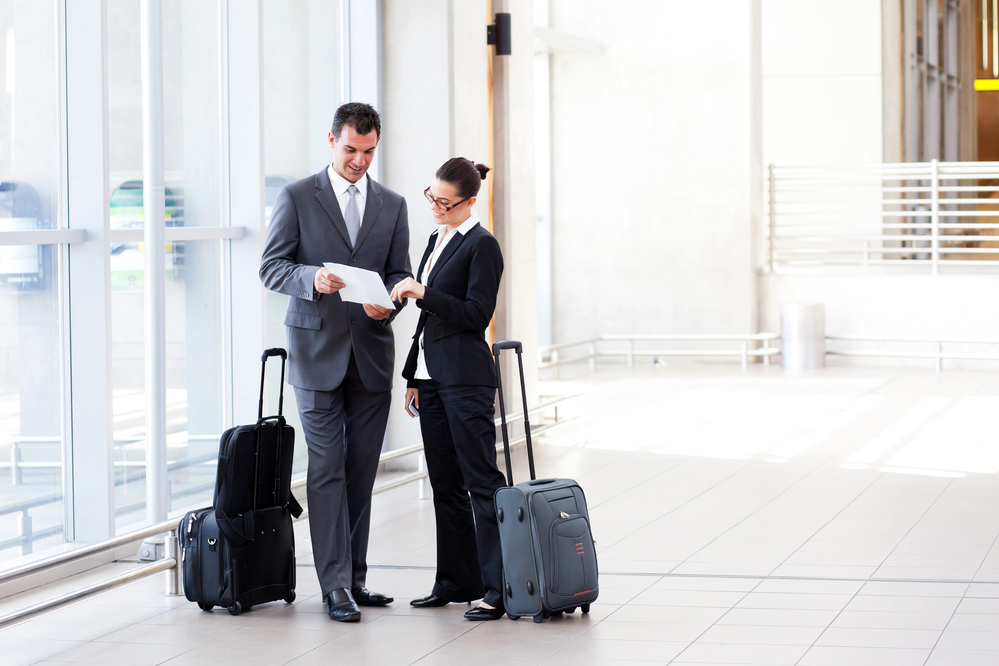How to Properly Deduct Your Business Travel Expenses This Summer
Peacock & French CPAs
Jun 01, 2024

As summer approaches, many business owners find themselves planning trips that combine work and leisure. Whether you're attending a conference, meeting clients, or conducting field research, it's possible to take advantage of tax deductions for business travel expenses. However, it's crucial to distinguish between business and personal expenses, especially when your family accompanies you. This guide will provide detailed instructions on how to track, document, and claim your business travel expenses, ensuring you maximize your deductions while staying compliant with IRS regulations.
Understanding Deductible Business Travel Expenses
Before diving into the specifics of combined business and personal travel, it's essential to understand what constitutes a deductible business travel expense. The IRS allows deductions for ordinary and necessary expenses incurred while traveling away from your home for business purposes. These can include:
- Transportation: Airfare, train tickets, car rentals, and mileage for personal vehicles.
- Lodging: Hotel or lodging costs, excluding extravagant accommodations.
- Meals: 50% of meal expenses incurred during the trip.
- Incidental Expenses: Tips, laundry, and other minor expenses.
- Communication: Business-related phone calls and internet access fees.
- Other Expenses: Conference fees, equipment rental, and business supplies.
Combining Business and Personal Travel
When combining business and personal travel, you can only deduct expenses directly related to your business activities. Personal expenses, such as your family's travel costs, are not deductible. Here's how to navigate these mixed-purpose trips:
1. Primary Purpose Test: The primary purpose of your trip must be business-related. If more than 50% of your trip's days are spent on business activities, you can generally deduct travel expenses. Days spent traveling to and from your destination count as business days.
2. Separate Personal Expenses: Costs incurred by family members traveling with you are not deductible. For example, if you drive to a conference and your family comes along, only your mileage and business-related expenses are deductible.
Tracking and Documenting Expenses
Accurate record-keeping is critical to substantiate your travel deductions. Follow these guidelines to ensure you have the necessary documentation:
- Keep a Travel Log: Maintain a detailed itinerary of your trip, noting business meetings, conferences, and other work-related activities. Include dates, locations, and descriptions of each activity.
- Save Receipts: Collect receipts for all business-related expenses, including transportation, lodging, meals, and incidentals. Digital copies are acceptable, but ensure they are legible and complete.
- Use Expense Tracking Apps: Consider using apps like Expensify, QuickBooks, or MileIQ to track and categorize your expenses in real time. These tools can help you stay organized and simplify the documentation process.
- Separate Business and Personal Expenses: Clearly distinguish between business and personal expenses. For example, if you rent a car for a week and use it for both business and leisure, keep a mileage log to allocate costs accurately.
Claiming Business Travel Deductions
When it comes time to file your taxes, follow these steps to claim your business travel deductions:
- Report Transportation Costs: Deduct airfare, train tickets, car rentals, and mileage on Form 2106 (Employee Business Expenses) or Schedule C (Profit or Loss from Business) for self-employed individuals. Include any taxi or ride-sharing expenses related to business activities.
- Deduct Lodging Expenses: Report your hotel or lodging costs on the appropriate form. Ensure the expenses are reasonable and not lavish, as the IRS may disallow excessive claims.
- Calculate Meal Expenses: Deduct 50% of your meal expenses incurred during the business trip. Use the actual expense method, where you keep all receipts, or the per diem method, where you use IRS-approved daily rates for meals and incidentals.
- Include Incidental Expenses: Claim other minor expenses, such as tips, laundry, and business-related phone calls, on your tax forms.
- Document Conference Fees and Supplies: Report any fees for attending conferences, renting equipment, or purchasing business supplies during your trip.
Best Practices for Mixed-Use Travel
To ensure your mixed-use travel expenses are deductible, consider these best practices:
1. Plan Ahead: Clearly outline the business purpose of your trip before you travel. Schedule business activities throughout the trip to meet the primary purpose test.
2. Pro-rate Shared Expenses: If you incur expenses shared with family members, such as lodging or car rentals, allocate the costs based on the portion used for business. For example, if a hotel room costs $200 per night and you stay for five nights, with three nights for business, you can deduct 60% ($600).
3. Consult a Tax Professional: Navigating the nuances of business travel deductions can be complex. Consult a tax professional or CPA to ensure you're correctly deducting expenses and maximizing your tax benefits.
Properly deducting business travel expenses, especially when combining business and personal travel, requires careful planning and meticulous record-keeping. For personalized assistance and expert advice, consider contacting us at Peacock & French CPAs. We can provide the knowledgeable, in-depth guidance you need to handle your upcoming travel expenses appropriately.